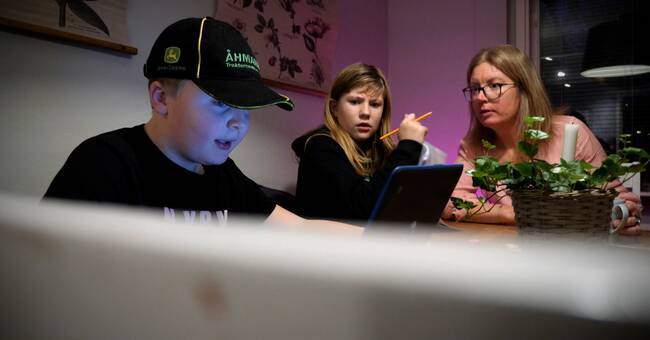The siblings Alva Egerborn, 11, and Mille Egerborn, 12, in Östergötland's Mjölby have had several student assistants over the years, as an extra support when it has become too difficult to keep up in the classroom.
It has worked both well and badly, says their mother Jenny Egerborn.
- Some have stopped and others have not worked with the child, while some have been absolutely fantastic, she says.
But synonymous with almost all of their student assistants is that they were young people who lacked teacher training, whose skills and background varied greatly.
Not infrequently, the role has been combined with also being a leisure educator, at the same time as they have rarely had time to prepare for the lessons.
- They often get to know what the lesson is about at the same time as the student, then it happens that they sit in an individual room with the task.
Then it will be the student assistant who teaches the child and not the teacher, even though they hardly know what to teach, says Jenny Egerborn.
Lacks knowledge of diagnoses
Many have also lacked knowledge about the neuropsychiatric diagnoses that are often the reason for children's need for special support.
Jenny Egerborn, who herself has worked as a student assistant for a short period, emphasizes that she does not criticize the individual student assistants.
- What I am critical of is the system and that there are not enough resources.
They must have an education and time to plan.
This is a very difficult role, and how well it works depends on how well you fit together as people.
But unfortunately, the student assistants are also replaced all the time.

